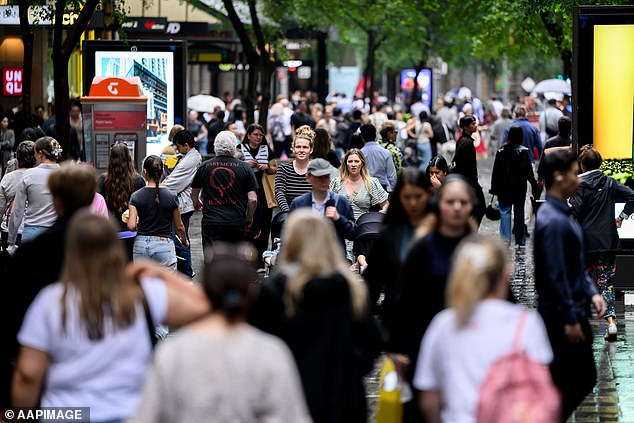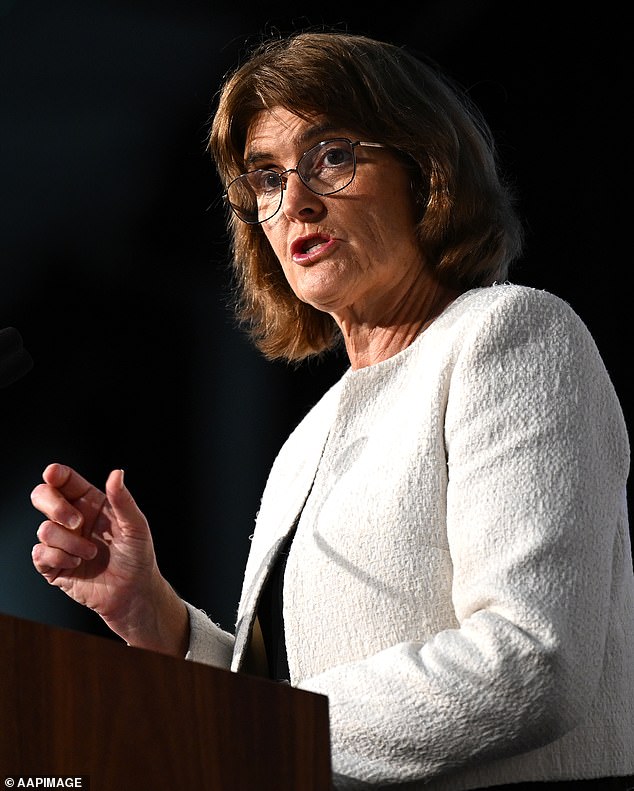Australian businessman Mark Bouris has issued a gloomy forecast for the Australian economy, despite signs that an interest rate cut could soon be on the cards.
The finance guru has warned Australia could be heading towards a “full recession” due to high interest rates and their crippling impact on household budgets.
The founder of Wizard Home Loans began his opinion piece for news.com.au by intervening in the Reserve Bank of Australia’s decision on Tuesday to keep interest rates at 4.35 per cent.
“But this time, the RBA made a huge turn,” Mr. Bouris wrote.
“For the first time in years, the Reserve Bank hinted at an upcoming interest rate cut.”
Bouris wrote the RBA statement noting that output growth has been weak, wage pressures have eased and income and consumption have recovered more slowly than expected.
“More importantly, the RBA said inflation has slowed and is moving towards target,” Mr Bouris continued.
“This is code for an upcoming rate cut and, frankly, it’s about time.”
Mark Bouris (pictured) warned Australia could be heading towards a ‘full recession’

Bouris wrote that Australia could be heading towards a recession due to high interest rates and their crippling impact on household budgets. Shoppers are pictured at Pitt St Mall in Sydney
Bouris called on the RBA to consider cutting interest rates at its next meeting in February to avoid a recession.
He argued that maintaining high rates could aggravate economic conditions and lead to a full-blown recession.
Bouris wrote that high interest rates had a purpose and should be raised since inflation was too high for a long time.
“But now, the negative impacts of high interest rates outweigh the benefits,” Mr. Bouris said.
“High interest rates have slowed the economy to the point that we are on the brink of a full-blown recession.”
Bouris argued high interest rates are straining household budgets due to rising mortgages and Australians are spending less as a result.
He warned this could have a knock-on effect on businesses as sales fall and costs rise.

Bouris called on the RBA to cut interest rates at its next meeting in February. Pictured is Reserve Bank of Australia Governor Michele Bullock.
This will result in companies cutting jobs, which will drive up unemployment.
“This is a recipe for disaster, and the Reserve Bank cannot allow it to happen as a result of its one-dimensional anti-inflationary crusade,” Mr Bouris wrote.
He argued that the perception that the only way to stop inflation is to increase interest rates is wrong.
But that’s not true. “One of the main drivers of inflation right now is electricity bills,” he wrote.
“But high interest rates will not reduce energy prices.”
He suggested the same applies to grocery prices and that interest rates will fail to boost competition in the supermarket sector.
‘One of the reasons food prices are so high is because the supermarket system in Australia is a duopoly. “Woolworths and Coles control the majority of the market,” Mr Bouris wrote.
He said interest rates would make no difference to the duopoly and it was a job for the Australian Competition and Consumer Commission.
Bouris ended the article by noting that other countries, including New Zealand, the United States, Canada, the United Kingdom and the EU, have begun to reduce interest rates in response to economic conditions.
“Let’s hope the Reserve Bank does the same in February,” Mr Bouris wrote.
“Because if they don’t, we will trade high inflation for a recession.”

